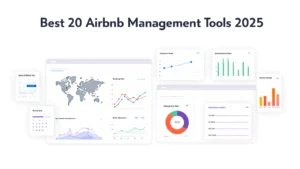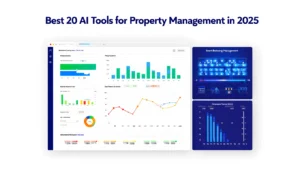Predicting property value growth is not just about flipping through recent property ads or guessing which areas will become the next “hotspot.” It’s about using hard data, staying ahead of shifting trends, and knowing exactly where to look. When it comes to property investments in the UK, success is often reserved for those who have mastered the art of prediction. But how do you get there? This blog post aims to provide you with a solid strategy to forecast property value growth with precision—whether you’re a seasoned investor or just starting.
At Pearl Lemon Properties, we don’t believe in “gut feelings” or vague advice. Instead, we focus on real, actionable insights that help you make decisions based on data and market patterns. Let’s dive into the essential factors that can help you predict property value growth in the UK.
Why Predicting Property Value Growth is Critical for UK Investors
Understanding how to predict property value growth is a game changer for anyone looking to thrive in the UK real estate market. Property prices in the UK fluctuate constantly, and while some areas see a rapid surge, others experience stagnation or even decline. The key to managing this volatility is prediction—knowing where the growth will happen before it does.
Here’s why prediction matters:
- Maximise returns: With the right insights, you can invest in areas poised for growth, ensuring higher returns on your investments.
- Mitigate risks: Identifying markets that are about to decline helps protect you from unnecessary losses.
- Timely decisions: Knowing when to buy or sell a property at the right moment is critical in maximising profits.
By predicting property value growth, you can make data-backed decisions that will shape the success of your property portfolio for years to come.
Schedule a consultation to understand how our insights can help you predict property growth in the UK.
The Key Factors Driving Property Value Growth in the UK
To predict property value growth accurately, you need to focus on several key drivers. These are the fundamental factors that influence demand and, ultimately, property prices.
Demand vs. Supply
The classic law of supply and demand holds in the property market. When there are more buyers than available properties, prices will naturally rise. Conversely, an oversupply of housing can lead to price stagnation or even a drop in value.
Key indicators:
- Population growth: Areas with rapidly growing populations often see an increase in housing demand.
- Limited housing stock: Locations with fewer properties available can lead to bidding wars, driving prices up.
Pro Tip: To predict growth, look at areas where there’s a shortage of housing and high demand—such as areas with expanding local populations or insufficient new developments.
Economic Factors
A growing economy supports increased demand for both residential and commercial properties. Factors like employment rates, income levels, and GDP growth all influence the demand for housing.
- Interest rates: When interest rates are low, borrowing costs decrease, leading to more buyers entering the market.
- Inflation: Higher inflation can lead to rising construction costs, which in turn push property prices up.
Location, Location, Location
The importance of location in property value growth cannot be overstated. This adage holds now more than ever in the UK market.
- Proximity to amenities: Properties located near schools, hospitals, public transport, and other amenities see better long-term growth.
- New developments: Properties in areas seeing infrastructure investment—such as new shopping malls, transport links, or business hubs—are likely to experience value growth.
Pro Tip: Research infrastructure projects like HS2 and Crossrail. They have a profound impact on property values in nearby areas.
Book a call with us to see how you can apply this to your current investment strategy.
How to Use Big Data and Market Indicators to Predict Growth
Gone are the days of relying solely on guesswork or anecdotal evidence. Predicting property value growth is now a data-driven process. Several tools and market indicators are available to help you forecast property trends with high accuracy.
Tech-Driven Insights
Various platforms can provide detailed market analysis, property value predictions, and trends. Websites like Zoopla, Rightmove, and Propcast offer comprehensive data on property prices, historical trends, and forecasts. These insights can help you spot areas poised for growth before they hit the mainstream.
- Predictive analytics: Many real estate platforms now use AI-powered models to forecast future property values based on historical data.
Comparable Sales Analysis
Understanding what similar properties are selling for in a specific area is one of the best indicators of future price growth. By tracking recent sales and comparing properties in the same neighbourhood, you can assess whether an area is trending upwards or stagnating.
Pro Tip: Track property sales using online platforms that provide detailed transaction history, including price fluctuations and market conditions at the time of sale.
Tracking Key Economic Indicators
Economic indicators can give you insight into how the wider market is likely to perform. Key data points include:
- Unemployment rates: A low unemployment rate often correlates with property price growth, as people have more disposable income.
- Housing completions: Tracking the number of new homes being built in an area can give you a sense of potential oversupply or undersupply.
By staying updated with these indicators, you can make more informed predictions about property growth.
Schedule a consultation to get access to tools and resources that will make these strategies work for you.
How Local and National Economic Trends Impact Property Values
National and local economic conditions play a significant role in shaping property market trends. Understanding these influences can help you pinpoint potential growth areas.
National Economic Policies
Government policies, particularly those related to housing and interest rates, have a direct impact on property prices. For example, any changes to stamp duty or tax regulations can cause ripple effects in the market. Likewise, national economic factors like GDP growth, inflation, and government spending influence demand for housing.
- Brexit: The aftermath of Brexit led to shifts in the property market, particularly in areas that were reliant on foreign investment. Understanding these changes allows investors to target more stable areas.
Local Economic Growth
Local economic factors also influence property prices. Areas that are home to thriving industries or major employers tend to experience price growth as workers relocate for job opportunities.
- Pro Tip: Keep an eye on local business developments, employment rates, and any new government investment in regional development.
The Role of Property Development and Urban Regeneration in Value Prediction
Urban regeneration and property development can significantly increase property value, especially in previously underdeveloped or overlooked areas. Major regeneration projects can transform a region, attracting new residents and businesses.
- Gentrification: As areas become more desirable, property values increase. This often happens in inner-city areas that are being revitalized through new developments.
- Property flips: Skilled investors can spot areas ripe for regeneration and purchase properties before prices climb, generating substantial returns.
How Government Policies Affect Property Value Growth
Government interventions, whether through housing subsidies, tax incentives, or zoning changes, can influence the property market in significant ways. Understanding these policies will give you a competitive edge.
Stamp Duty and Taxation
Changes in stamp duty and property taxes can create spikes in property transactions. When the government lowers these taxes, more people are incentivized to buy, leading to price increases. Conversely, an increase can reduce buying activity, slowing price growth.
Government Housing Schemes
Initiatives like Help to Buy or shared ownership schemes can increase demand, especially for first-time buyers. Such schemes often deliver property values upward in specific regions.
Book a call to learn how these factors may affect your investment strategy.
Why Choose Us?
At Pearl Lemon Properties, we focus on providing actionable, data-driven insights that help you predict property value growth in the UK. Here’s why our approach works:
- In-Depth Market Analysis: We don’t rely on guesswork. We use up-to-date data, trends, and predictive models to give you the most accurate forecasts for property growth.
- Tailored Insights: Every property market is different, and we understand that. Our insights are customized to fit your investment goals, helping you spot opportunities that others may miss.
- Real-Time Information: The property market moves quickly. We offer you timely updates and access to tools that keep you ahead of the curve.
- Proven Track Record: Our approach has helped countless investors make informed decisions that lead to profitable outcomes.
- Dedicated Support: We’re with you at every step—whether you’re just getting started or expanding your portfolio.
Schedule a consultation with us to start predicting property growth with confidence.
FAQs on Predicting Property Value Growth in the UK
- How do I use economic indicators to predict property value growth?
Look at data such as GDP growth, inflation, interest rates, and unemployment rates. These all provide insights into the health of the housing market. - How important are local market conditions in predicting growth?
Extremely important. Local factors, such as population growth, employment rates, and proximity to infrastructure projects, play a crucial role in determining property value trends. - What are the risks of predicting property value growth?
While data is helpful, it is not foolproof. The market can be influenced by external factors, such as political changes or economic shocks, which can affect your predictions. - How do I know if a property is undervalued?
Look for signs such as underdevelopment in the area, the upcoming construction of amenities, or government investment that could push property demand higher in the near future. - How can I identify emerging property hotspots in the UK?
To spot emerging hotspots, look for areas with upcoming infrastructure projects (like new transport links or commercial developments), growing local populations, or areas undergoing regeneration. Tracking planning permissions and monitoring property sales trends can also provide valuable insights.
- What tools and resources can help me predict property value growth?
You can use platforms like Zoopla, Rightmove, and Propcast for property value tracking. Additionally, property data analysis tools and market forecasting models offer advanced insights that can help you make informed decisions.
- How do external factors like interest rates affect property value predictions?
Interest rates directly impact mortgage affordability and buyer demand. When interest rates rise, borrowing becomes more expensive, potentially slowing property price growth. Monitoring these trends helps you adjust your investment strategy accordingly.
- What are the risks of relying solely on market predictions?
While predictions provide valuable guidance, the market can be influenced by sudden shifts, such as political changes or unexpected economic events. It’s important to balance predictions with a well-rounded approach to mitigate risks.
Wrapping it Up!
Predicting property value growth in the UK requires a combination of market insights, economic understanding, and the ability to identify upcoming trends before they happen. By using data, tracking key indicators, and staying updated on government policies and infrastructure development, you can make well-informed decisions that will maximize your investment returns.
At Pearl Lemon Properties, we specialize in helping investors like you stay ahead of the market. Whether you’re looking to buy, sell, or simply gather insights into the UK property market, we’re here to guide you through every step of the process.Schedule a consultation to get started today and learn how we can help you make smarter, more profitable property investments.





